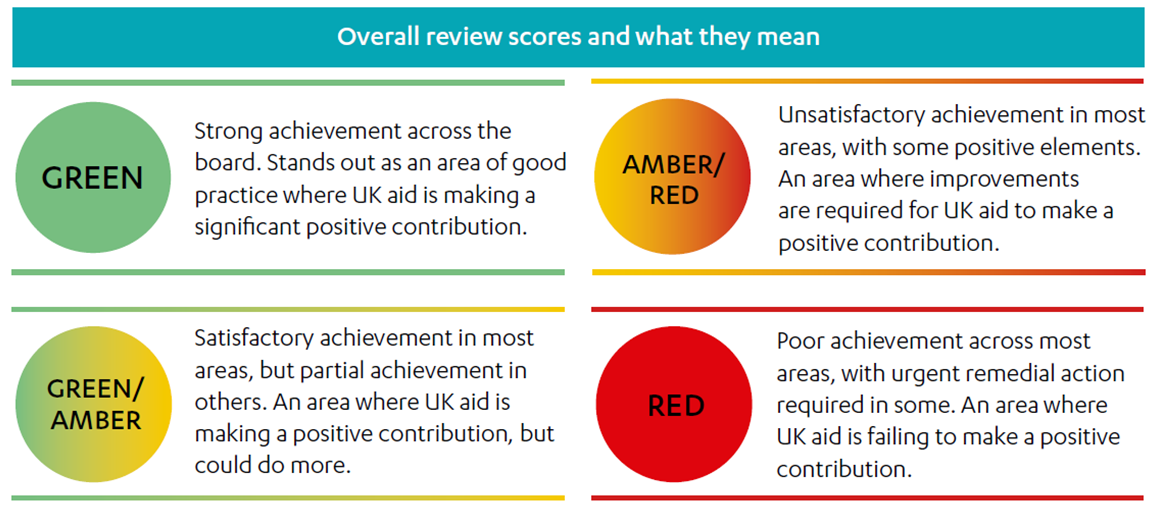ICAI works to improve UK aid through robust, independent, scrutiny. We do this through producing a series of reviews and reports examining a range of different areas of UK aid spending and processes. These reviews look at the spending of official development assistance, whichever department or cross-government fund it is spent by.
The below sets out ICAI’s approach to reviews under the Third Commission (2019-2024). Our approach for the Fourth Commission, led by Commissioners Jillian Popkins, Harold Freeman and Liz Ditchburn, will be confirmed in due course and this page will be updated.
Review process
A full ICAI review takes on average nine to 12 months to complete. However, depending on the complexity of the review subject, the process can take longer. We also produce a range of other types of review, including ‘updates’ to existing reviews, ‘rapid reviews’ and ‘information notes’ which take varying lengths of time.
ICAI starts the review process by writing an initial terms of reference document and an approach paper, establishing the scope and methodology for the review. The review then moves into an evidence gathering phase which typically includes conducting interviews, a literature review, desk research and country visits before a draft report is written.
All reviews are sent for ‘fact check’ to ensure the evidence, facts and figures are accurate.
ICAI reviews are published online.
Types of review
We carry out a range of different reviews and reports:
- Full reviews, take a rigorous look at the relevance, effectiveness, efficiency and/or sustainability of an aspect or theme of UK aid delivery, with a strong focus on accountability. We also have two specialist types of full review – a country portfolio review and a results review:
- Country portfolio reviews assess the impact of all UK aid, from all departments, funds and organisations in a given country. These reviews typically include a strong element of citizen voice, to ensure that UK aid is meeting the needs and priorities of the country’s citizens.
- Results reviews seek to test the results claims underlying UK aid programmes, and assess evidence that transformative and sustainable impact is being achieved.
- Rapid reviews are shorter reviews of an emerging issue or area of UK aid spending. While we examine the evidence to date and provide conclusions and recommendations based on our assessment, our rapid reviews do not examine the evidence in sufficient depth to allow for scoring.
- Information notes are shorter, factual notes that provide information and analysis on an area of UK aid, but do not reach evaluative judgements on any specific programmes. Information notes are not scored, and do not typically provide recommendations, but will often outline issues that may require further investigation.
Scores
ICAI uses a four-tier traffic light system to rate the findings from reviews:

Government’s response
Most ICAI reviews produce a set of recommendations for the government to consider.
Aid-spending departments that are the subject of a recommendation are required to produce departmental responses to the ICAI review, indicating whether they ‘accept’, ‘partially accept’ or ‘reject’ each recommendation and setting out the management actions that they propose to take in response.
All government responses to ICAI reviews can be found online.
Follow up
Each year, ICAI follows up on the response to the recommendations it made in previous reviews. The process is a key link in the accountability chain, providing Parliament and the public with an account of how well government departments have responded to ICAI reviews. It also provides feedback to civil servants and serves as a useful learning exercise for ICAI in our quest to achieve greater uptake of our findings and recommendations.
Since 2020, ICAI’s follow-up reviews have been scored to provide a clearer picture of the government’s progress in implementing recommendations.
ICAI follow up reviews are available under published reviews.
